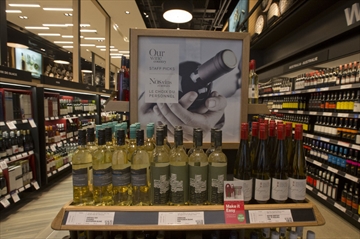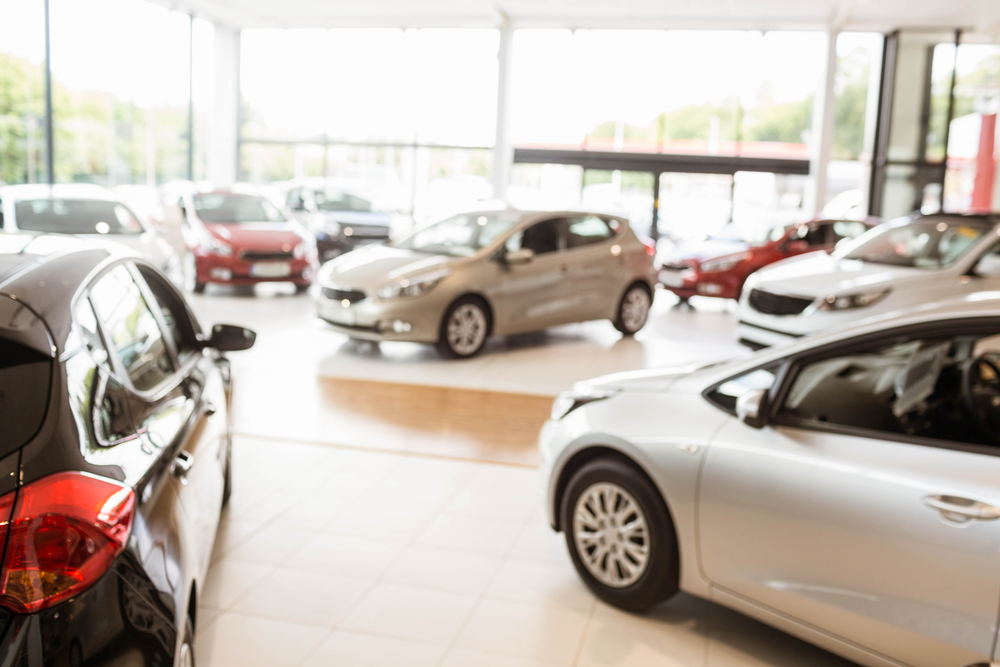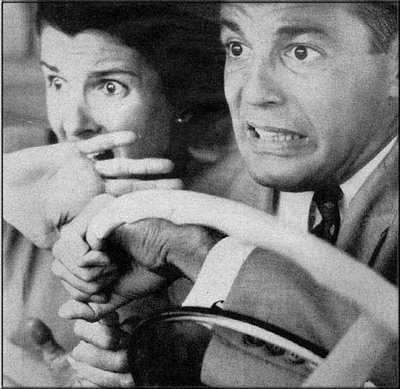8 “Tiny” Expenses that Make Car Payments a Struggle
Even after getting approved for a car loan, a sense of dread sets in. That usually coincides with the first payment. Let’s be honest – no one really wants to add another bill to their life, when they already have a list full of things to pay for. But there’s another side to consider. Most of us are overspending on certain items, services and guilty pleasures that we should enjoy in moderation. That’s why paying for the essentials becomes so burdensome. So for those of you struggling to make car payments (and other commitments), take a good look at where your money is going. You might be quick to blame your salary or greedy CEOs for your lack of funds, but the problem may come from your spending habits.
Rants, Raves and Responsibilities
If we’re not talking about sports, politics, celebrities or what we’re going to do on the weekend, our conversations tend to fall back on our hatred for bills. The hydro bill is too high. The phone bill doesn’t match the underwhelming options you have. And then there’s you car – you have to pay for insurance coverage, maintenance and gas. So when you throw a car payment on top of that, it can feel excruciating. You probably hear or make statements of the sort:
“Bills, bills, bills!”
“As soon as I make money, it’s gone.”
“How the (insert expletive) am I supposed to save if I’m always paying bills?”
“I don’t know how I’m gonna pay next month’s bill.”
“I need to win the lottery!”
If you’ve heard or something remotely similar to the expressions mentioned above, then you know the frustration of seeing your money disappear to bills (such as car payments). But let’s look at another dimension. Where your money might be going to.
Money in the Air
Money is kind of like the water cycle, in that your funds vanish – the difference being that it’s not like rain where it’s guaranteed to return. A lack of employment or major debts can put you in a monetary drought. And the other reason for such deficits are bad habits.
Funding Your Caffeination
The morning hours can be hard to survive without your dark roast (or whatever you prefer). But that daily jolt is costing you. Spending $2 – $3 a day, five times a week, for 4 weeks brings you to a total of $40 – $60 a month. It’s not a lot in the grand scheme of things, but that could mean the difference between being able to pay a bill on time or not. The solution is to buy your own coffee which you can brew at home. By doing that, you’ll spend less money on a daily basis, while still satisfying your soul with the aromas and flavours it deserves.
Bucks for Booze
While coffee is a perfect wake up call, you also need to wind down too, right? And that’s where alcohol comes in. Again, a  little booze is great in moderation, but it’s not so great when you’re always buying it. Along with the risks of alcohol dependency, constantly buying a six-pack of domestic beer or an imported brand of rum will hurt your wallet. For example, spending $75 a week on alcohol would cost you almost $4000 a year! Just cutting that in half, could make it much easier to keep up with your car payments. The obvious answer is to cut down on your alcohol expenses.
little booze is great in moderation, but it’s not so great when you’re always buying it. Along with the risks of alcohol dependency, constantly buying a six-pack of domestic beer or an imported brand of rum will hurt your wallet. For example, spending $75 a week on alcohol would cost you almost $4000 a year! Just cutting that in half, could make it much easier to keep up with your car payments. The obvious answer is to cut down on your alcohol expenses.
Spending on Breakfast, Lunch
It’s alright to occasionally treat yourself to a nice lunch during the week, and it’s not a crime to buy breakfast on those days you missed it at home. But if it becomes the norm, expect your bank account to surprise you. Your chicken and pasta dish or breakfast sandwich combo may only cost $10, but if you bought them ten times a month, that’s $100 – a significant chunk of most car payments. Do yourself a favour by waking up a bit earlier to make and eat breakfast at home – you’ll save money and feel much healthier too. The same goes for lunch. If you make dinner at home, why not cook a bit extra so that you have leftovers for the next day? Food shouldn’t drain all your cash.
Dropping cash for apps
It’s incredible how useful apps are now. Some apps are so practical, that they’re actually worth paying for (such as financial, fitness and language apps). But you have to draw some boundaries. Buying too many apps will quickly add up, and you won’t like the balance on your credit card (assuming you download new apps all the time). Your best bet is to try demos, free versions, and buy the apps for activities that are truly significant in your life.
Cash for your amusement
 Everyone needs a little R&R in their lives, and that means entertainment. Netflix accounts are great, but some people insist on watching every new flick that comes out in cinemas. Additionally, there are individuals who will spend over $60 for every new game title that comes out. Before they know it, their account is almost cleaned out. Does that ring a bell? If you spend $15 four times in one month at movies, plus $180 on video games (which is about the price of two games now), that would amount to $240 alone. You can fix this by waiting for movies to come out on streaming platforms (like Netflix) or waiting for game prices to drop (even if it’s hard to do).
Everyone needs a little R&R in their lives, and that means entertainment. Netflix accounts are great, but some people insist on watching every new flick that comes out in cinemas. Additionally, there are individuals who will spend over $60 for every new game title that comes out. Before they know it, their account is almost cleaned out. Does that ring a bell? If you spend $15 four times in one month at movies, plus $180 on video games (which is about the price of two games now), that would amount to $240 alone. You can fix this by waiting for movies to come out on streaming platforms (like Netflix) or waiting for game prices to drop (even if it’s hard to do).
Money for the meter
Driving in the city is a pain. The one-way streets, the traffic jams, the reckless drivers – it’s not fun. But finding parking is one of the biggest nuisances. Sometimes, you just have to give in by spending the $10 – $20, so you save time and avoid getting a ticket. But if you’re spending money on parking weekly (or God forbid, daily), you’ll find yourself losing a lot of cash. So what do you do? One option is taking public transit if the occasion allows for it. You can also carpool with friends or colleagues. Or if you frequently visit a location, looking into a monthly pass of some sort – you’ll most likely end up paying a bit less as opposed to buying a ticket every time. It’s worth trying to find ways around the parking conundrum – $20 weekly adds up to $1,040 a year. It ain’t cheap.
of the biggest nuisances. Sometimes, you just have to give in by spending the $10 – $20, so you save time and avoid getting a ticket. But if you’re spending money on parking weekly (or God forbid, daily), you’ll find yourself losing a lot of cash. So what do you do? One option is taking public transit if the occasion allows for it. You can also carpool with friends or colleagues. Or if you frequently visit a location, looking into a monthly pass of some sort – you’ll most likely end up paying a bit less as opposed to buying a ticket every time. It’s worth trying to find ways around the parking conundrum – $20 weekly adds up to $1,040 a year. It ain’t cheap.
Paying top-dollar for everyday things
You need clothes, gas, food and whole lot of other essentials. And yes, the costs of these things keep going up. However, if you’re always shopping at high-end fashion boutiques and premium supermarkets, your money will disappear faster than items on clearance. Why drop so much cash for a cheap label? You can still dress fancily and eat well without having to spend a fortune. When it comes to clothing, look out for clearance sales and visit retail outlets since they tend to sell apparel at significantly lower costs. Grocery shopping doesn’t need to hurt your wallet either. There are many alternatives to premium supermarkets if you spend the time to look. A store like Costco’s allows you to buy in bulk. And if you insist on buying a particular food brand, look out for sales – they happen all the time.
Buying a gym membership
Everyone want’s to look and feel great. We’re pretty sure you wouldn’t mind having chiseled abs, toned glutes, and boundless energy (assuming you don’t have these things already), and working out at a gym makes these things possible. But if you’re spending too much on a fancy gym, or simply don’t use it at all, then you’ll want to think twice about the expense. It doesn’t make sense to hold a membership that you’re not using – you’re burning your money. And a gym can easily cost you several hundreds a year. So your best bet is preventative – only choose a plan for facilities you’ll use, and don’t choose a gym simply because it’s trendy or high-tech. And if you bought a membership but never go, start going!
The Towering Effect of Tiny Purchases
Although this post may seem like a character assassination at you, it’s not – we’re just pointing out the often overlooked practices that makes money disappear. It’s true, that the costs of living are rising while salaries stay the same, but it’s also worth noting that a lot of people are throwing away the funds they do have. Could you be doing the same? If you’re not sure, take note of all the things you spend, even if it’s only for a week. You might be surprised to see where money goes. Ultimately, if you notice there’s room for improvement, don’t hesitate to make changes – you’ll probably see how much easier it will be to make your car payments.






